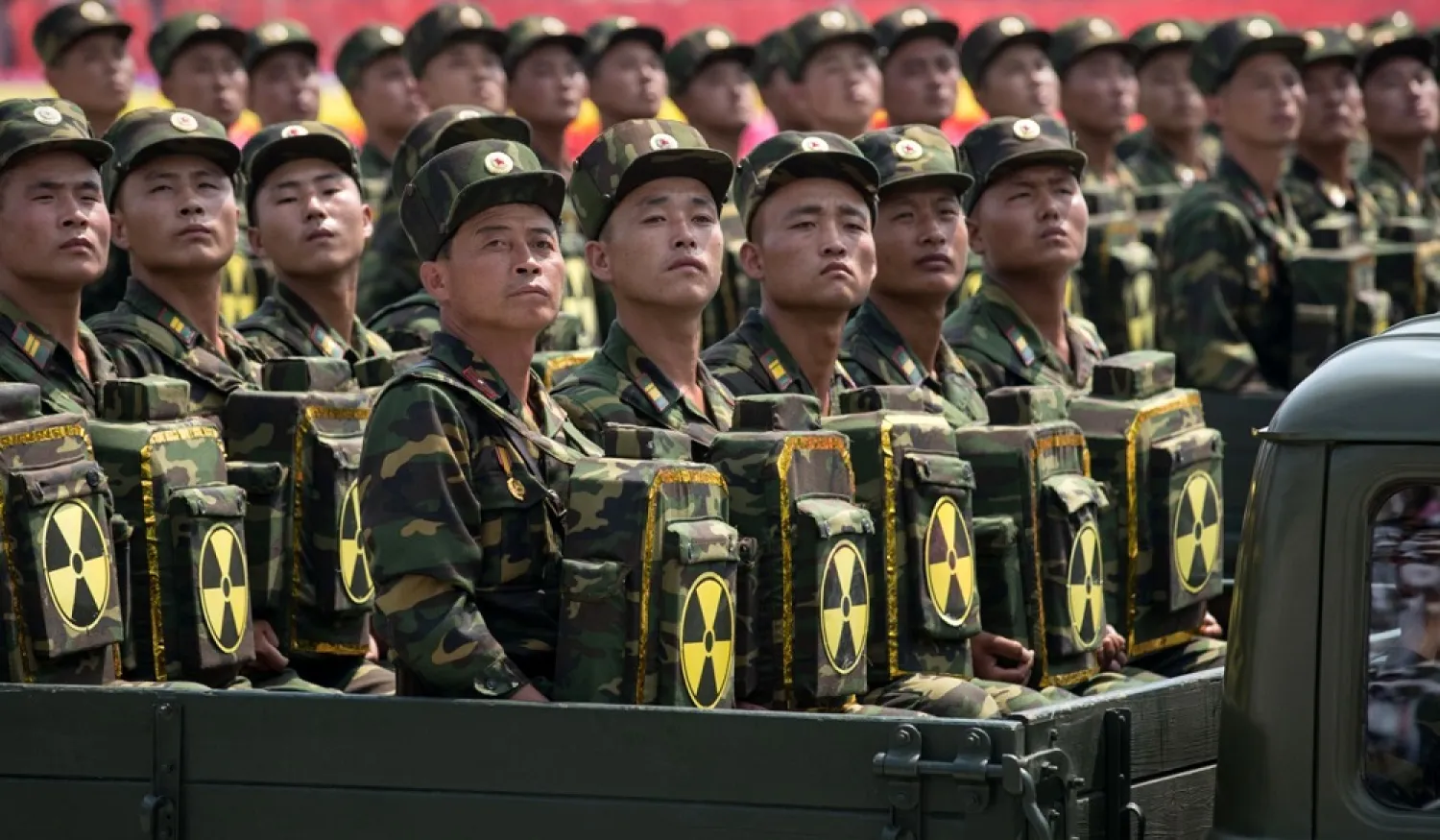China on Tuesday said that threatening action or rhetoric will not help in resolving the crisis with North Korea only hours after US Secretary of Defense Jim Mattis said that military options are available.
“Developments in the peninsula nuclear issue up to this point prove that, no matter whether it is military threats in words or in action, they cannot promote and advance a resolution,” the foreign ministry spokesman, Lu Kang, said.
Asked whether there were any military options the United States could take with North Korea that would not put Seoul at grave risk, Mattis said there were, but declined to give details.
“To the contrary, it just adds to tensions and makes achieving the goal of de-nuclearization on the peninsula appear more complicated and difficult to resolve,” the Chinese official added, responding to a question about Mattis’ comments at a regular briefing.
The North has repeatedly defied the United Nations to conduct nuclear and missile tests, the latest being a mid-range missile fired over Japan on Friday, soon after the reclusive nation’s sixth and most powerful nuclear test on September 3.
Seoul is within artillery range of North Korea, which is also believed to have a sizable chemical and biological arsenal beyond nuclear and conventional weapons.
Any conflict on the Korean peninsula could lead to bloodshed unseen since the 1950-53 Korean War, which took the lives of more than 50,000 Americans and millions of Koreans and ended in an armed truce, not a peace treaty.
Military options available to the United States range from non-lethal actions such as a naval blockade to enforce sanctions to waging cyber attacks and positioning new US weaponry in South Korea, where the United States has 28,500 troops.
South Korea and the United States, and separately Russia together with China, started military drills on Monday, in a show of force against North Korea.
The Korean peninsula issue must be resolved peacefully, Chinese foreign minister Wang Yi stressed during a meeting with his Russian counterpart at the United Nations.
Chinese President Xi Jinping and US President Donald Trump spoke by telephone about keeping pressure on North Korea using economic sanctions imposed through the United Nations, the White House has said.
Meanwhile, Trump will urge during his first speech before the United Nations General Assembly on Tuesday world powers to turn up the pressure on North Korea to give up its nuclear weapons.
He will seek to rally the world to help the US and its Asian allies reduce North Korea to pariah status.
Trump’s move on Pyongyang comes as the US ambassador to the United States, Nikki Haley, says that most non-military options have all but been exhausted. The UN Security Council has already imposed several rounds of sanctions on North Korea.
Mattis told reporters that he believed diplomacy and sanctions were so far succeeding in putting more pressure on Pyongyang.
Even as tensions rise, the United States and its allies have stuck to a hands-off policy when North Korea test-fires its missiles. Mattis confirmed that the US would not shoot down a North Korean missile unless it poses a direct threat to the United States or its allies.
North Korea’s official KCNA news agency said on Monday that the more sanctions that Washington and its allies imposed on Pyongyang, the faster it would move to complete its nuclear plans.
South Korea has raised the possibility of reintroducing nuclear weapons to the peninsula. Mattis acknowledged discussing that with his South Korean counterpart but declined to say whether that option was under consideration.
Japan on Tuesday moved a mobile missile-defense system on the northern island of Hokkaido to a base near recent North Korean missile flyover routes.
Defense Minister Itsunori Onodera said a Patriot Advanced Capability-3 interceptor unit was deployed at the Hakodate base on southern Hokkaido "as a precaution" as part of government preparations for a possible emergency.
The relocation came after a North Korean missile was test-fired last week and flew over southern Hokkaido and landed in the Pacific off the island's east coast — the second flyover in less than a month.
The PAC-3 was brought from another base in Yakumo town on Hokkaido, about 80 kilometers (50 miles) northeast of Hakodate. The system has a range of about 20 kilometers (12 miles).
Four more of Japan's 34 PAC-3 units, largely used to defend the capital region, were relocated to southwestern Japan recently after North Korea warned of sending missiles toward the US territory of Guam.
Japan currently has a two-step missile defense system. First, Standard Missile-3 interceptors on Aegis destroyers in the Sea of Japan would attempt to shoot down missiles mid-flight. If that fails, surface-to-air PAC-3s would try to intercept them.
Japan's Constitution, which limits the use of force to self-defense, only allows the military to shoot down missiles that are heading to Japan, or debris falling onto Japanese territory. Onodera has said a new security law passed in 2015 might allow it to shoot down a Guam-bound missile if it poses a critical security threat to Japan and its top ally, the United States.









